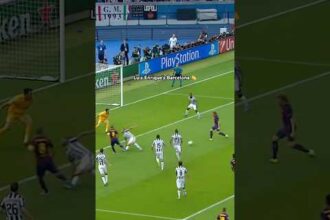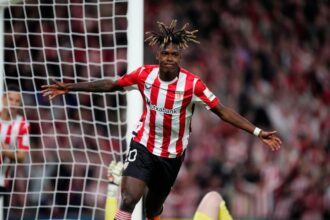After Inter Miami’s exit from the CONCACAF Champions Cup, Sergio Busquets addressed the debate over whether the team is too dependent on Lionel Messi.
Lionel Messi has been one of the most influential players in world soccer over the last two decades. At 37, he continues to perform at a high level in Major League Soccer with Inter Miami. But following the team’s elimination from the CONCACAF Champions Cup, questions have resurfaced about how heavily the team depends on him. Veteran midfielder Sergio Busquets addressed the topic head-on.
Inter Miami faced a 2-0 deficit heading into the second leg of the Champions Cup semifinal against the Vancouver Whitecaps. The Herons struck first in the 9th minute, briefly reigniting hopes of a comeback. However, they couldn’t maintain momentum and ultimately fell 3-1 at home—another performance where both the team and Messi struggled to make a significant impact.
When asked about the team’s reliance on Messi, Busquets didn’t shy away from the reality. “There’s no team with Messi on it that doesn’t depend on him. He’s the most decisive player in the world, the best player, and it’s obvious that we have to rely on him to a great extent—though not 100%,” he told reporters in the mixed zone.
Busquets added that Messi’s involvement remains a key barometer for the team’s success: “The more he’s involved in the game, the more we look for him and the more he can help us, then that will be a good sign.”
Messi’s influence on Inter Miami in 2025
As Busquets noted, Messi’s influence isn’t limited to goals. His ability to orchestrate play from deeper positions makes him the engine behind Inter Miami’s offense. That influence has been a consistent theme throughout his career, whether at Barcelona, Paris Saint-Germain, or with Argentina’s national team.
In 2025, Messi has featured in 13 matches for Inter Miami, scoring 8 goals and registering 3 assists. His involvement directly correlates with team success: in the eight games where he’s either scored or assisted, Inter Miami is undefeated (6 wins, 2 draws). In the five matches where he didn’t contribute to a goal, the team’s record drops to 1 win, 1 draw, and 3 losses.
Against Vancouver, Messi struggled to match the physicality of the opposition. Despite a few chances, he failed to make a major impact, and Miami’s attack looked disjointed without him driving the play. The Herons’ Champions Cup hopes ended in frustration—highlighting once again how much they depend on their No. 10.
Messi remains a game-changer, but when he isn’t at his best, Inter Miami often fall short. As the season progresses, the club’s ability to succeed when Messi isn’t firing could define how far they go in 2025 with the FIFA Club World Cup on the horizon.









